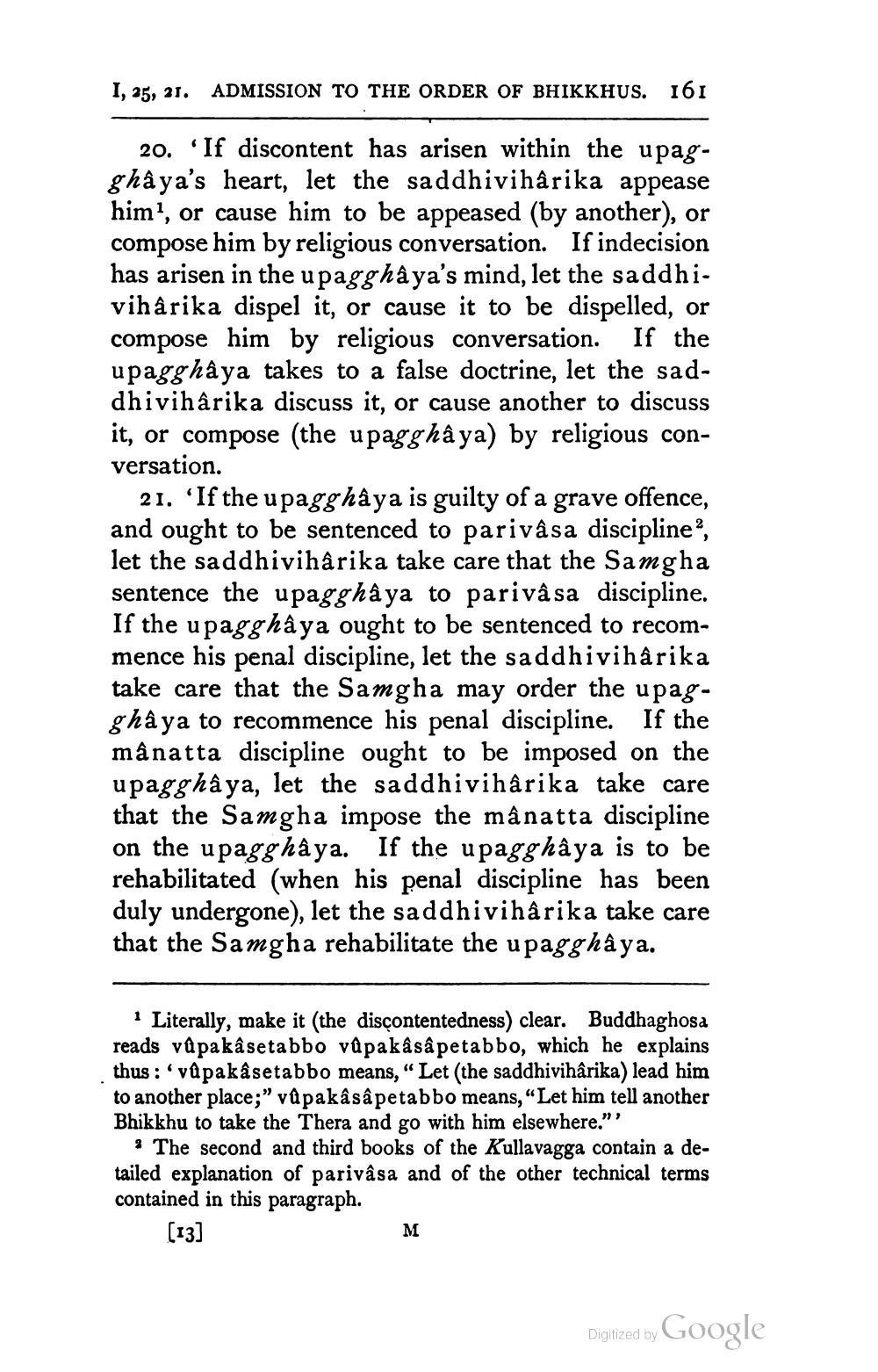________________
I, 25, 21. ADMISSION TO THE ORDER OF BHIKKHUS. 161
20. “If discontent has arisen within the upagghầya's heart, let the saddhivihârika appease him', or cause him to be appeased (by another), or compose him by religious conversation. If indecision has arisen in the upagghầya's mind, let the saddhiviharika dispel it, or cause it to be dispelled, or compose him by religious conversation. If the upagghầya takes to a false doctrine, let the saddhiviharika discuss it, or cause another to discuss it, or compose (the upagghầya) by religious conversation.
21. 'If the upagghầya is guilty of a grave offence, and ought to be sentenced to parivâsa discipline”, let the saddhiviharika take care that the Samgha sentence the upagghầya to parivâsa discipline. If the upagghầya ought to be sentenced to recommence his penal discipline, let the saddhiviharika take care that the Samgha may order the upagghầya to recommence his penal discipline. If the mânatta discipline ought to be imposed on the upagghầya, let the saddhiviharika take care that the Samgha impose the mânatta discipline on the upagghầya. If the upagghầya is to be rehabilitated (when his penal discipline has been duly undergone), let the saddhivihârika take care that the Samgha rehabilitate the upagghầya.
1 Literally, make it (the discontentedness) clear. Buddhaghosa reads vû pakâsetabbo vû pakâsâpetabbo, which he explains thus :'vûpakâsetabbo means, “Let (the saddhiviharika) lead him to another place;" vû pakâsâpetabbo means, “Let him tell another Bhikkhu to take the Thera and go with him elsewhere."
* The second and third books of the Kullavagga contain a detailed explanation of parivâsa and of the other technical terms contained in this paragraph.
[13]
Digitized by Google




